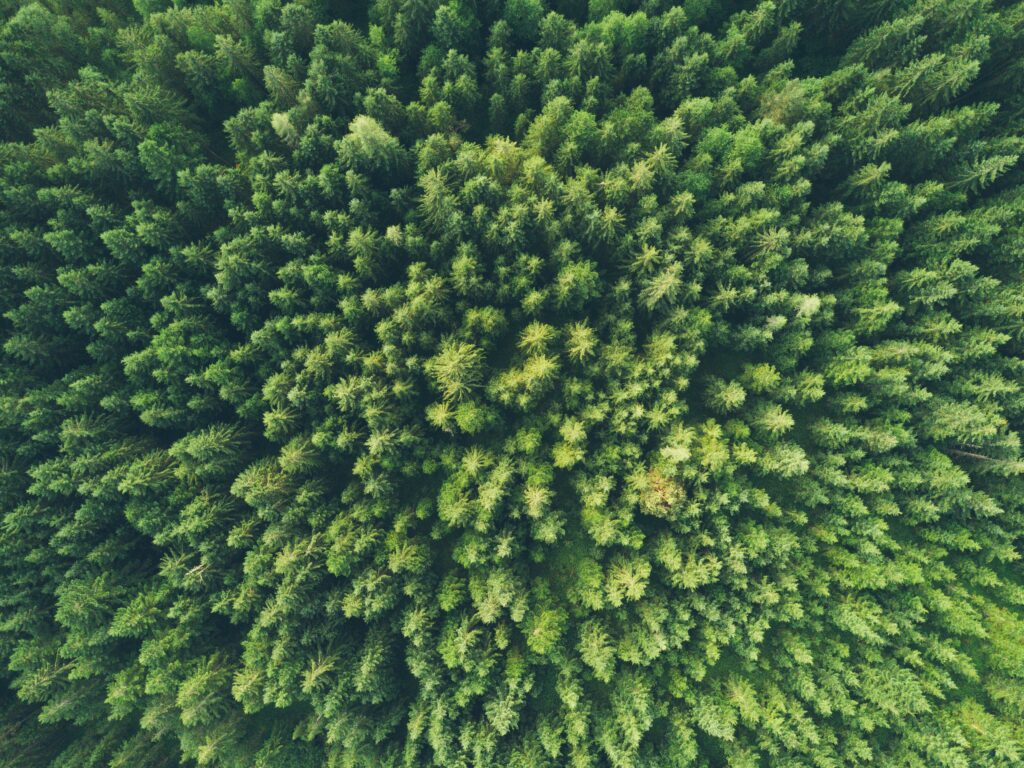
Empowering girls with science
effects change
The Ladies’ College
STUDENTS
A huge champion of IRIS, Dr Karen Marshall continues to promote our student-led research projects in her school. The science teacher’s encouragement has resulted in an impressive student-led movement to decrease Ladies College’s impact on the environment.
It started last academic year, when a group of her students started gathering data to establish the school’s carbon footprint as part of Carbon Researchers, a project developed by Carbon Footprint in partnership with IRIS and the UK Space Agency.
“We asked the bursar about how much electricity we use and teachers were asked about where they go on school trips. Flights contributed quite a lot to our carbon footprint,” said Lauren a student at the school.
The young researchers visited the Guernsey Post Office to investigate its solar panels to see if it was an option for their school. They surveyed the student body to better understand their travel habits.
“The biggest part of our carbon footprint was the number of cars used to get students to school,” said Robyn.
The students then developed a plan to lower the school’s impact on the environment – decrease car travel, use renewable sources of energy and reduce food waste and food miles – and presented their ideas to the Ladies College leadership team. After positive response from the school, they decided to organise a climate strike with young people across Guernsey to encourage other schools to work up their own carbon reduction plan. They even met with minsters from local government.
“I heard about the project in my science lessons. Climate science is something I have always been passionate about and I felt that the project was an excellent way to make some positive changes to the local environment. I am keen to study this further,” said Robyn, a Ladies College student.
This year, with the school’s support, a new wave of students continued to push the environmental agenda. As part of Ladies’ College’s 150th anniversary, they proposed planting 150 trees to help offset the school’s carbon footprint and celebrate its future legacy. The students joined Treezilla, an ambitious project developed by Carbon Footprint and UK Space agency to map all of Britain’s trees and record vital data about tree disease and the environmental benefits that trees provide. By identifying and measuring trees for the project, they also established how many trees they needed to plant to offset the school’s carbon and determine which species would be best.
“We hope every tutor group in the school will be able to help out by planting some trees around the site. We will use trees that are appropriate for our soil and that will fit in the area available, by sourcing information from the Woodland Trust,” said a student researcher presenting at the IRIS Virtual Conference.
The school’s environmental plan also includes reducing single use plastics. Students are encouraged to use reusable water bottles which they can refill at the school’s water stations. Another group of student researchers investigated how to make bioplastics using vegetable starch. This involved making a small range of bioplastics using simple recipes, then testing the physical and chemical properties of each and their ability to biodegrade. They measured these against household plastics, like duck tape, polystyrene, plastic bags and containers. They were pleased to see their bioplastics biodegraded quicker. The Ladies College students said the research experience improved their understanding of the impact fossil fuels have on the environment.
Want to get involved?
IRIS has three environment focused projects to get you started:
Carbon Researchers – empowers young scientists to measure their school’s carbon impact and devise a plan to reduce it.
Earth Observation – students use satellite data to investigate glaciological features, floods and fires and contribute to scientists’ efforts to understand our changing landscape.
Treezilla– offers a practical way for young people to uncover the impact of climate change on the natural world and make a contribution to the UK’s tree canopy survey.
